Best movies like Leonard Bernstein: A Genius Divided
A unique, carefully handpicked, selection of the best movies like Leonard Bernstein: A Genius Divided Starring Leonard Bernstein, and more. If you liked Leonard Bernstein: A Genius Divided then you may also like: We Make Music, Rembrandt, Carnegie Hall, Fantasia, Taking Sides and many more popular movies featured on this list. You can further filter the list even more or get a random selection from the list of similar movies, to make your selection even easier.
One of the first US born conductors to receive worldwide fame, Leonard Bernstein is an exceptional composer and certainly not only due to The West Side Story. Instead of concentrating exclusively on his most famous work, Thomas von Steinaecker sets out to paint a complete picture of Bernstein. Thus, the documentary focusses on the American’s less known later works and on three compositions in particular: his Mass, the musical 1600 Pennsylvania Avenue and the great final opera A Quiet Place. The film paints a vivid picture of the multitalented Bernstein, struggling with his role as composer and conductor, tackling the tension between successes and flops, between the politics of his time and his own liberal humanitarian claim. It looks back on Bernstein’s major achievements, such as his acclaimed conducting of Mahler and his involvement in the Young People’s Concerts, and it shows Bernstein’s work with young aspiring musicians as well as his political commitment.
You may filter the list of movies on this page for a more refined, personalized selection of movies.
Still not sure what to watch click the recommend buttun below to get a movie recommendation selected from all the movies on this list
Rembrandt
Already a famous painter, Rembrandt van Rijn is commissioned to paint the Amsterdam Archers' Guild. But upon completion of the picture, the men of the guild feel duped, because they don't consider themselves flatteringly depicted in the painting. They therefore decline to pay for the work. During this dispute, the painter finds out his wife is close to death. He finds himself terribly lonely after her passing and suffers from depression until he decides once more to marry.
Carnegie Hall
A young Irishwoman comes to the United States to live and work with her mother as a cleaning lady at Carnegie Hall. She becomes attached to the place as the people she meets there gradually shape her life. The film also includes a variety of performances from some of the foremost musical artists of the times: conductors Bruno Walter & Leopold Stokowski, solists Arthur Rubinstein & Jascha Haifetz, singers Lily Pons & Jan Peerce and bandleader Vaughn Monroe among many others.
Taking Sides
One of the most spectacular and renowned conductors of the 1930s, Wilhelm Furtwangler's reputation rivaled that of Toscanini's. After the war, he was investigated as part of the Allies' de-Nazification programme. In the bombed-out Berlin of the immediate post-war period, the Allies slowly bring law and order to bear on an occupied Germany. An American major is given the Furtwangler file, and is told to find everything he can and to prosecute the man ruthlessly. Tough and hard-nosed, Major Steve Arnold sets out to investigate a world of which he knows nothing.
Orchestra Rehearsal
An orchestra assembles for a rehearsal in an ancient chapel under the inquisitive eyes of a TV documentary crew, but an uprising breaks out.
Wizard Mode
Mastering classic pinball arcade games requires focus, agility and dedication. Robert Gagno has all these traits. It might explain why he surged from a complete unknown to one of the world's best players in five years. The achievement is even more impressive considering he was diagnosed with autism at age three. His success on the pinball circuit made him part of a community that provided acceptance and encouragement. With his parents' support and determination, Robert has exceeded every expectation placed upon him. As he approaches adulthood, his next challenge is to become more self-sufficient and gain his independence. From high-stakes tournaments across the continent to his day-to-day search for employment, we follow Robert's persistent progression to overcome obstacles and manage the highs of success and lows of falling short. In Wizard Mode, flashing lights and triple combos highlight an outstanding individual who continues to beat the odds and set records.
Luxury Liner
Capt. Jeremy Bradford has a particularly exciting luxury liner cruise in store when he's charged with transporting a troupe of opera singers to Rio de Janeiro. Anxious to become a singer herself, Bradford's young daughter, Polly, decides to skip out on school and sneak onto the ship before it departs. Angry that his daughter disobeyed him, Bradford puts her to work on the ship for punishment, but Polly has her own ideas about how to spend the trip.
Mahler on the Couch
Alma Mahler's affair with the young architect Walter Gropius sets in motion a marital drama that forces her husband Gustav Mahler to seek advice from Sigmund Freud.
That Midnight Kiss
Opera singer Prudence Budell, overhears truck driver Johnny Donnetti singing opera, and persuades her opera company to give him a chance in her new opera. They fall in love, but on meeting his colleague Mary while visiting Johnny's work, Prudence becomes convinced Johnny is in love with her.
Tonight We Sing
Tonight We Sing is a 1953 musical biopic film, directed by Mitchell Leisen, based on the life and career of the celebrated impresario Sol Hurok. It stars David Wayne and Ezio Pinza.
Days of Happiness
Emma, a lesbian conductor, is confronted with a toxic relationship with her father.
Song of Love
Composer Robert Schumann struggles to compose his symphonies while his loving wife Clara offers her support. Also helping the Schumanns is their lifelong friend, composer Johannes Brahms.
The Great Victor Herbert
In his last film assignment, portly Walter Connolly fills the title role (in more ways than one) in The Great Victor Herbert. Very little of Herbert's life story is incorporated in the screenplay (a closing title actually apologizes for the film's paucity of cold hard facts); instead, the writers allow the famed composer's works to speak for themselves. In the tradition of one of his own operettas, Herbert spends most of his time patching up the shaky marriage between tenor John Ramsey (Allan Jones) and Louise Hall (Mary Martin). Many of Herbert's most famous compositions are well in evidence, including "Ah! Sweet Mystery of Life", "March of the Toys" and "Kiss Me Again", the latter performed con brio by teenaged coloratura Susanna Foster. Evidently, the producers were able to secure the film rights for the Herbert songs, but not for the stage productions in which they appeared, which may explain such bizarre interpolations as having a song from Naughty Marietta.
Song of My Heart
The portrait of Russian composer Peter Ilich Tchaikovsky focuses on his failed love affair.
The Great Waltz
Composer Johann Strauss risks his marriage over his infatuation with a beautiful singer.
Moonlight Murder
An escaped lunatic, a mysterious swami, and various lovers all have designs on a famous opera singer.
The Devil's Violinist
The life story of Italian violinist and composer, Niccolò Paganini, who rose to fame as a virtuoso in the early 19th Century.
Benjamin Britten: Peace and Conflict
A feature film about Benjamin Britten, released as part of the 100 year celebrations of his birth. Britten is the most performed British composer worldwide. This film premiered at Gresham's School, which he attended, and focuses on how his life-long pacifism influenced his life and music. Written and directed by Tony Britten (In Love With Alama Cogan), narrated by John Hurt and with a superb cast of young people, including many supporting roles taken by students of Gresham's School, the film weaves dramatisation with a documentary narrative.
The Lost Paradise
He is the most performed contemporary composer in the world. And yet he rarely ventures out in public, prefers to keep quiet about his music, feels at home in the forests of Estonia and generates therewith - perhaps involuntarily - the impression of a recluse, which is attributed to him again and again: Arvo Part. In The Lost Paradise, we follow him over a period of one year in his native Estonia, to Japan and the Vatican. The documentary is framed by the stage production of Adam's Passion, a music theater piece based on the Biblical story of the fall of Adam featuring three key works by Arvo Part. The world-renowned director Robert Wilson has brought this work to the stage in a former submarine factory in Tallinn. Tracing their creative process, the film offers rare and personal insights into the worlds of two of the most fascinating personalities in the international arts and music scene.
Enrico Caruso: A Voice for the Ages
Born in 1873 in a poor neighbourhood in Naples, Enrico Caruso conquered the world with his singing voice. At the age of 27 he got a contract at the Scala in Milan, and his already considerable popularity skyrocketed thanks to the invention of the gramophone. He sold millions of records, and garnered international acclaim. In 1903 he moved to New York to perform at the prestigious Metropolitan Opera, in the role of Radames. But his riches and fame attracted the attention of the Mafia, who started blackmailing him. He felt trapped by his fame and died at just 48 years old. Biographer Francesco Canessa, the music critic Jürgen Kesting and the composer Micha Hamel explain the ups and downs of the man behind the timeless Italian voice.
Karajan: Portrait of a Maestro
An account of the life and work of controversial German orchestra conductor Herbert von Karajan (1908-89), celebrated as one of the greatest musicians of the twentieth century.
The Making Of West Side Story
A documentary which shows, in great detail, the making of the 1985 Bernstein-conducted recording of the entire score of "West Side Story", featuring operatic stars.
Moebius Redux: A Life in Pictures
French artist and author Jean Giraud is one of the most famous and influential comic strip illustrators and authors of all time. He achieved his greatest fame as Moebius - not so much a pseudonym as an alter ego. With his triple-split personality - Jean Giraud, Moebius, Gir - he succeeded in making his work accessible in popular comic strip series like Blueberry, in metaphysical fantasies like John Difool and, not least, to a broad public, with set designs for films such as The Fifth Element. In Moebius Redux - A Life in Pictures an exceptional artist tells his life's and work's story. Extraordinary views on Paris, Los Angeles and the Mexican desert build a visual link between his life and his artistic universe, accompanied by the electronic soundtrack composed by "Kraftwerk" legend Karl Bartos.
Little Drummer Boy: Essay on Mahler by Leonard Bernstein
This television essay from 1985 was written by Leonard Bernstein to commemorate the 125th anniversary of Gustav Mahler's birth. Recorded in Israel, Vienna and later in London, it is punctuated by biographical interludes and illustrated by musical examples drawn from the cycle of Mahler's works recorded by Bernstein. Bernstein talks, plays and conducts various orchestras (Israel Philharmonic Orchestra, London Philharmonic Orchestra, Wiener Philharmoniker) and soloists (Janet Baker, Christa Ludwig, Edith Mathis, Lucia Popp, Walton Groenroos) in performances spanning 17 years. Leonard Bernstein also examines the roots of Gustav Mahler's inspiration. The programme also features music from the nine symphonies, 'The Song of the Earth' and the 'Wunderhorn Cycle'.
Elgar: Fantasy of a Composer on a Bicycle
Ken Russell revisits the life of Elgar, with musical background provided by the composer's works.
The Italian Character: The Story of a Great Italian Orchestra
The Italian Character: a film within music and about music. The Italian character is the story of one of the most renowned orchestras in the world, enriched by archive material of the last thirty years about the great conductors who have been performing on the most famous rostrum in Rome.
Herbert von Karajan: Maestro for the Screen
Documentary on conductor Herbert van Karajan, focusing on his early adoption of audio and video recording technology and his impetus to make use of it to preserve his musical legacy for future generations.
Maestro or Mephisto: The Real Georg Solti
This film tells the story of one of the greatest and most controversial conductors of the 20th Century. The Hungarian-born Georg Solti had huge drive, energy and ambition. A combination of willpower and extraordinary talent took him to the peak of musical power and prestige. This film includes remarkably candid interviews which Solti talked with great honesty about his life, challenges and achievements. It also includes new interviews with some of the artists and musicians who worked closely with him.
Electronic Vibrations: A Sound Changes the World
The amazing story of electronic music: its epic journey from its origins in Europe, at the hands of the great artists of the post-war classical avant-garde, to the great post-industrial cities of the USA, where this genre of genres took over music stores, shady clubs and, eventually, the big stages.
The Unanswered Question IV : The Delights and Dangers of Ambiguity
This series comprised six lectures on music, which cumulatively took the title of a work by Charles Ives, The Unanswered Question. Bernstein drew analogies to other disciplines, such as poetry, aesthetics, and especially linguistics, hoping to make these lectures accessible to an audience with limited or no musical experience, while maintaining an intelligent level of discourse: Bernstein provides two distinct meanings of the term ambiguity. The first is "doubtful or uncertain" and the second, "capable of being understood in two or more possible senses"




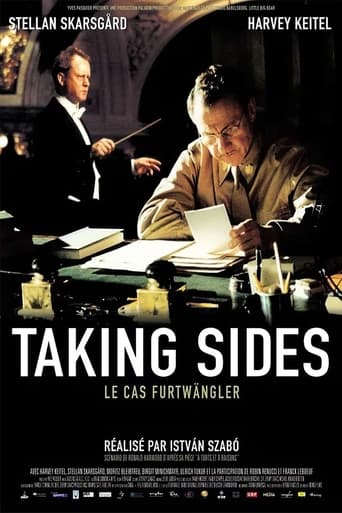




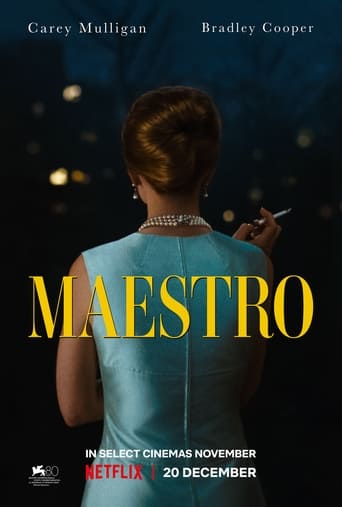
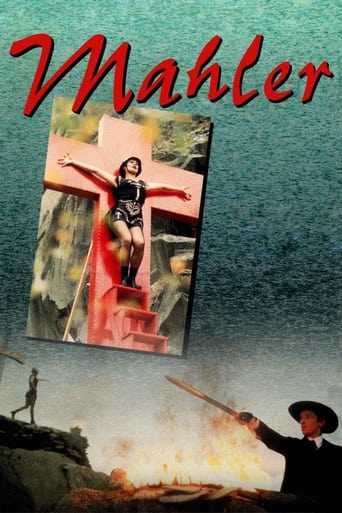



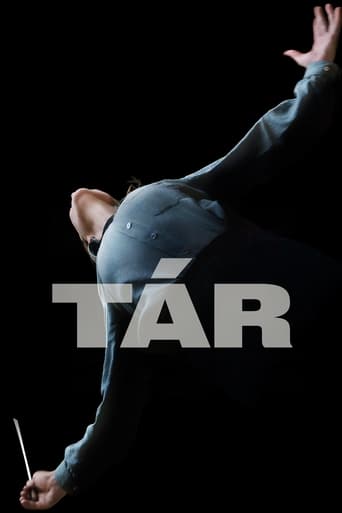

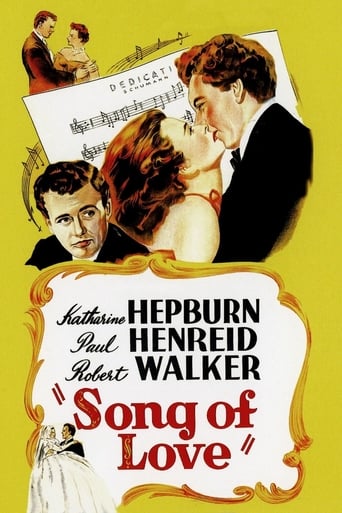




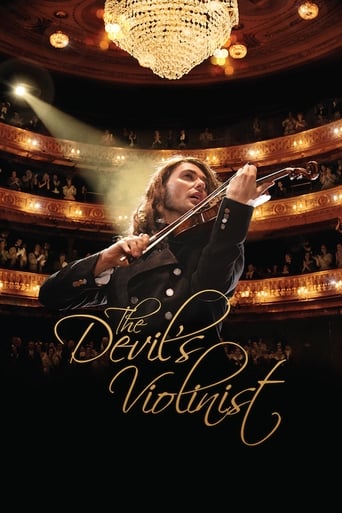



















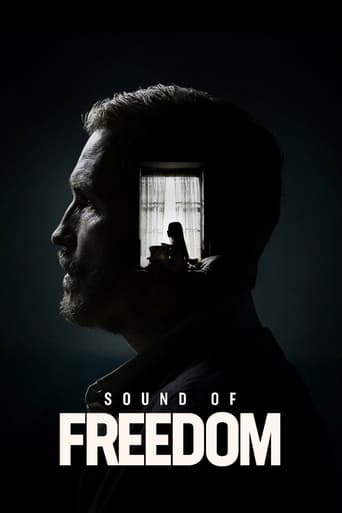


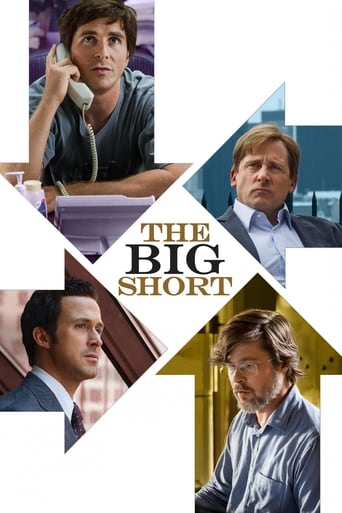
We Make Music
Caught at the window just before an air-raid warning (WWII) composer Paul tells how he met his wive Anni, a revue star and song writer, how he handled the courtship and the early years of his marriage, inspite of some professional conflicts - his operas were flops, while his wive had one success after the other - they finally found out how they could help each other.